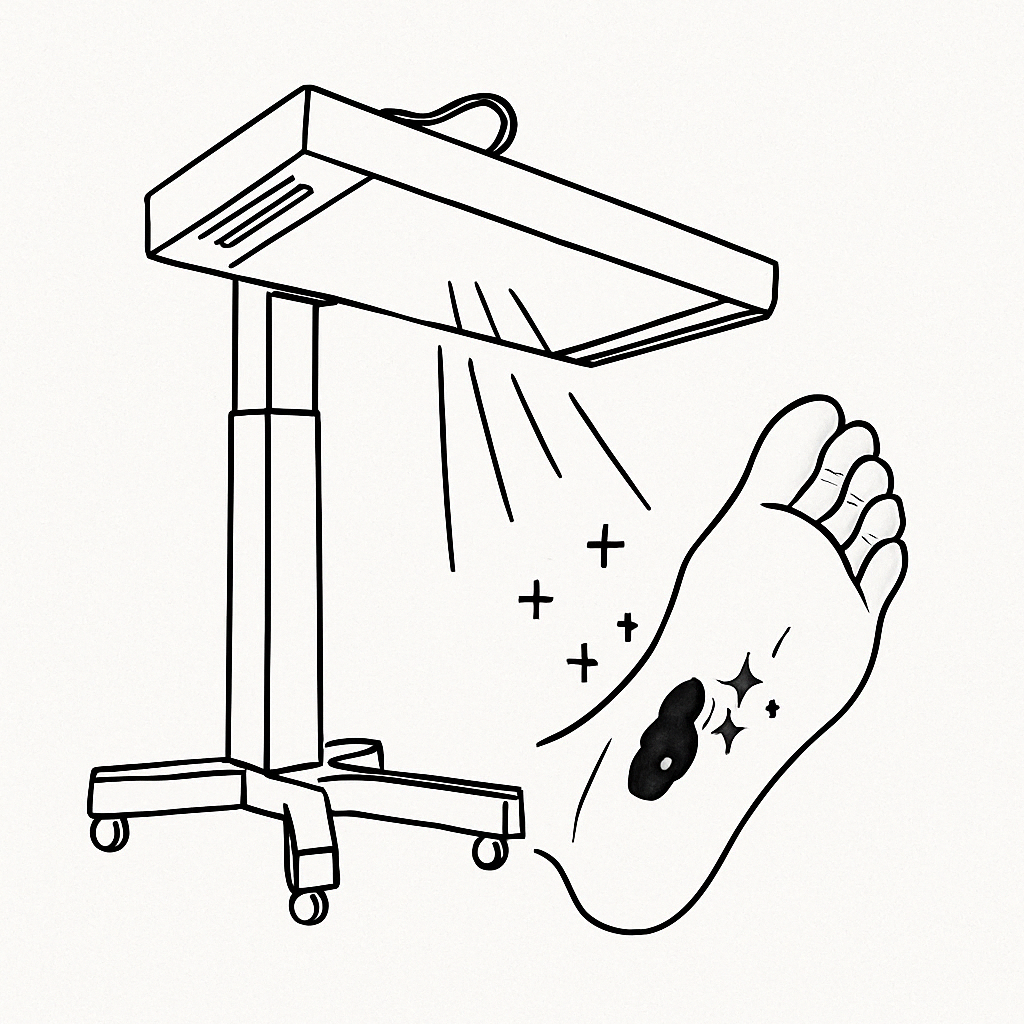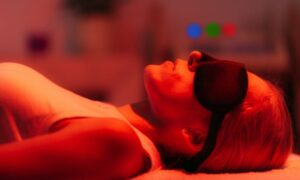A Case Study on Diabetic Foot Ulcer Healing Without Amputation
| Patient | 47-year-old female with Type 1 Diabetes |
| Ulcer Type | Wagner Grade 4 (35 cm², deep necrotic wound) |
| Prior Treatment | 35 days of standard wound care (no improvement) |
| PBMT Protocol | 870 nm wavelength, 2 J/cm², 4 sec/point, once/week for 16 weeks |
| Adjunct Care | Altrazeal powder, Vaseline gauze, offloading |
| Final Outcome | Complete healing, no surgery or amputation |
Why Diabetic Wounds Are So Dangerous
Diabetic foot ulcers (DFUs) can appear minor at first, but they often lead to infection, hospitalization, and amputation. In advanced cases like Wagner Grade 4 ulcers, healing becomes extremely difficult due to deep tissue damage and necrosis. Standard care often fails, leaving patients with few options beyond surgery. However, emerging research shows that Photobiomodulation Therapy (PBMT) can transform outcomes, even in severe cases.
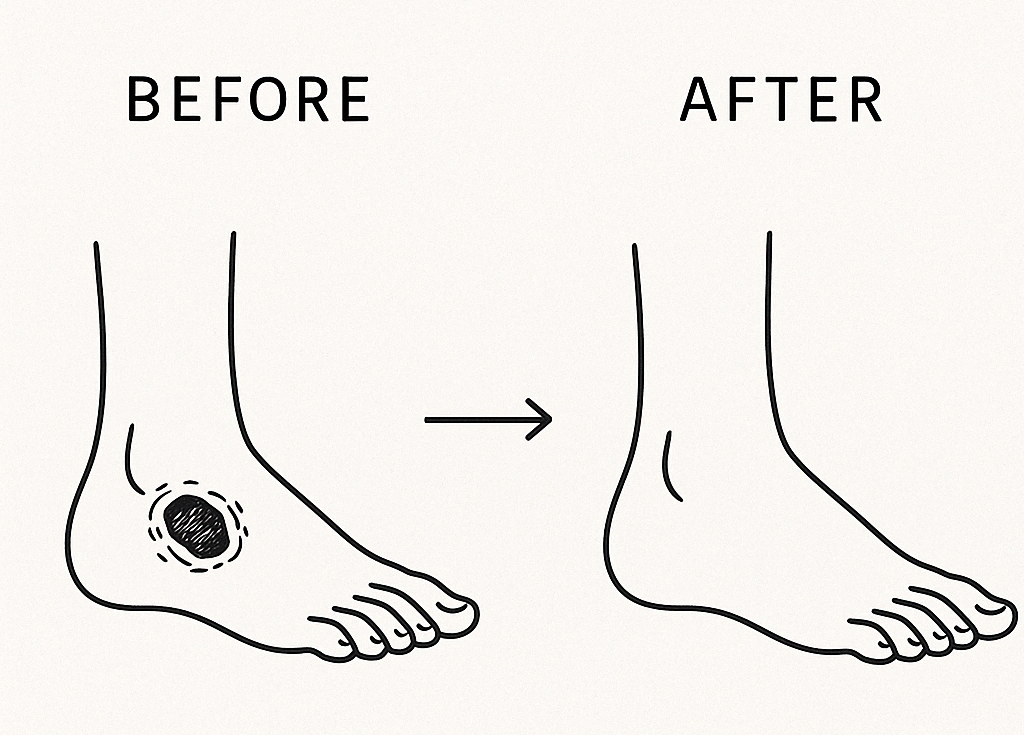
Patient Profile:
A 47-year-old female with Type 1 diabetes presented with a severe, non-healing foot ulcer measuring approximately 35 cm². The ulcer was classified as Wagner Grade 4, involving deep tissue damage, visible necrosis, and infection. The wound was painful and highly resistant to conventional treatments.
Previous Treatment Attempts:
Prior to PBMT intervention, the patient received 35 days of conventional wound care, including:
- Saline irrigation
- Topical and systemic antibiotics
- Surgical debridement
- Standard wound dressings
Despite these efforts, no measurable healing was observed. Necrosis persisted, and the patient remained at high risk for lower limb amputation.
Photobiomodulation Therapy(PBMT) Intervention
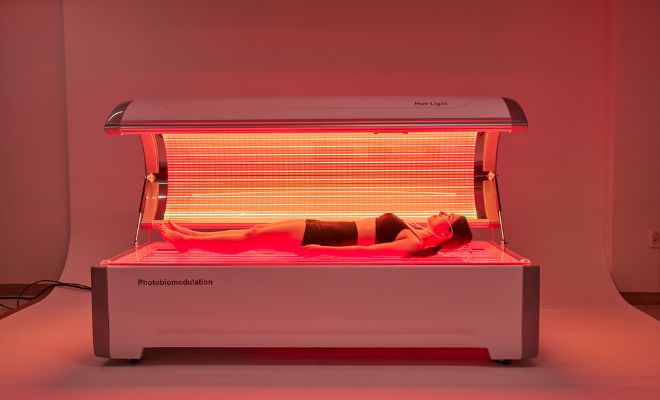
Treatment Protocol:
The patient was treated using a Photobiomodulation Therapy (PBMT) device emitting light at 870 nm wavelength. Treatment was administered as follows:
- 35 treatment points across the wound area
- 2 J/cm² energy per point
- 4 seconds per treatment point
- Once weekly sessions for a total duration of 16 weeks
Following each PBMT session, the wound was dressed with Altrazeal powder, Vaseline gauze, and an offloading bandage to prevent pressure on the affected area.
Results After 16 Weeks

The transformation was significant:
- Pain score dropped from 6 to 0 (VAS scale)
- Complete elimination of necrotic tissue
- Full tissue regeneration without surgical intervention
- Complete wound closure achieved
- No recurrence or infection reported post-treatment
This marked improvement allowed the patient to avoid amputation and restored full function to the affected foot.
📚 View the case study (PMID: 36743151)
How does Photobiomodulation Therapy work?
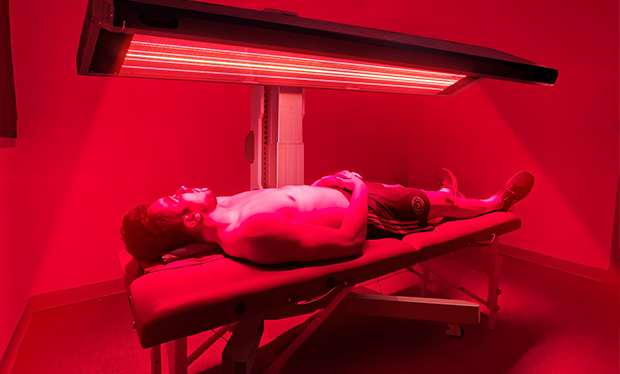
Photobiomodulation Therapy uses targeted wavelengths of light to activate specific biological processes at the cellular level. In this case, the therapeutic effects included:
- Increased ATP production, restoring cellular energy
- Stimulation of nitric oxide and VEGF, enhancing microcirculation
- Activation of regenerative growth factors such as FGF2 and HIF-1
- Immune modulation, shifting inflammatory macrophages (M1) to pro-repair types (M2)
- Reduction of inflammation and oxidative stress
This is not a heat-based treatment but a form of biological signaling, triggering natural healing cascades without damaging tissues.
Who Needs PBM Therapy?
PBMT offers a promising solution for patients who:
- Have chronic, non-healing wounds
- Are diabetic and at risk of amputation
- Are elderly with poor circulation
- Have failed to respond to conventional therapies
Why Huelight’s PBMT Device Stands Out
The PBMT chamber from Huelight was designed to deliver full-spectrum healing through:
- Six wavelengths (530–940 nm) targeting various tissue depths
- Adjustable light intensity and treatment area
- Built-in Nogier frequencies (8 settings) for frequency-specific effects
- UV-C sterilization for hygiene
- Bluetooth-enabled app control for real-time monitoring
- Long-term operation capacity (up to 5 hours continuous use)
This makes the Huelight PBM chamber ideal for clinical, long-term care, and even home use.
Conclusion: A Non-Surgical Path to Recovery
This case demonstrates the power of PBMT in reversing advanced tissue necrosis and avoiding limb amputation. With the right protocol and technology, even severe diabetic wounds can heal completely, safely, non-invasively, and without surgery.
👉 Explore Photobiomodulation Therapy Today!
